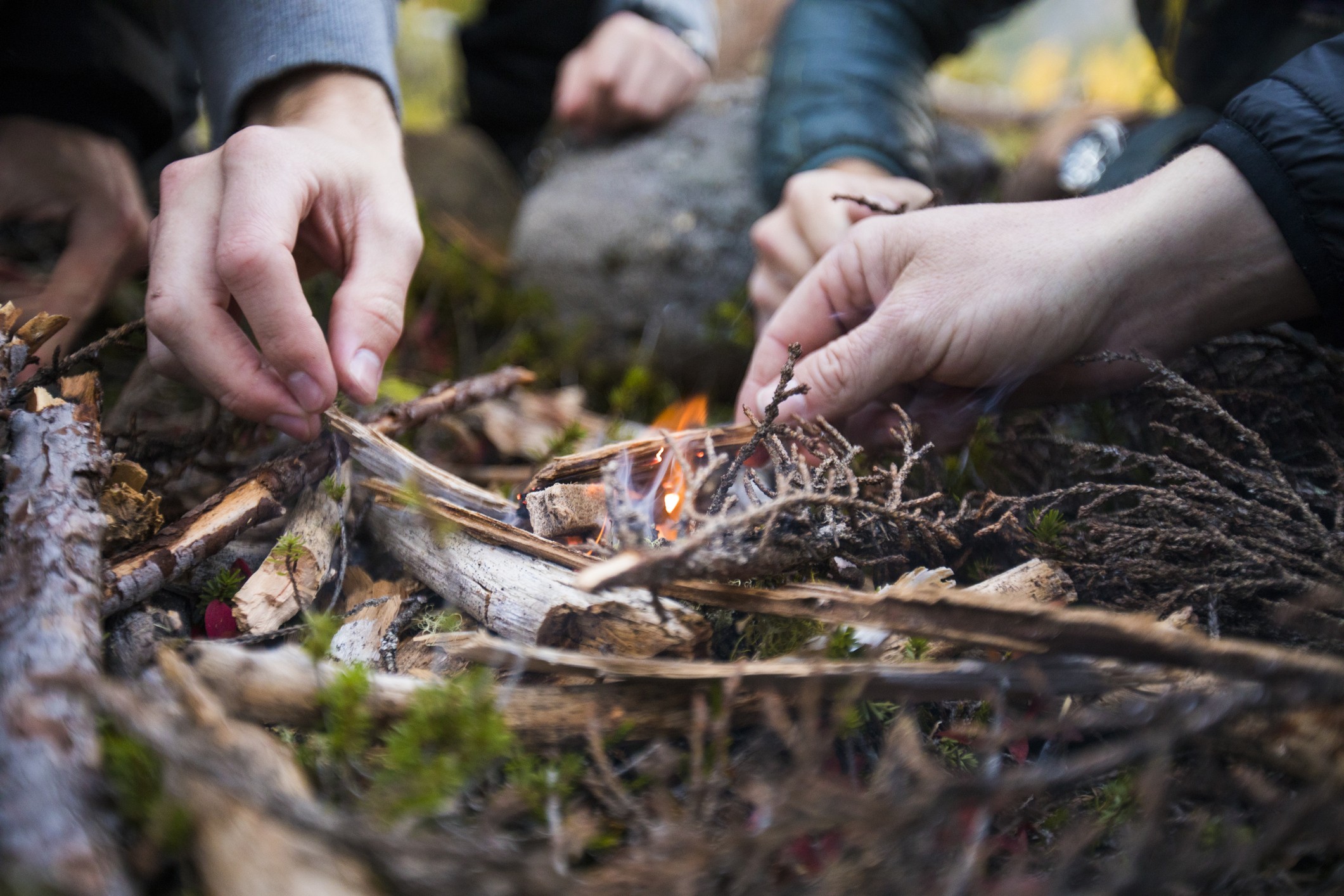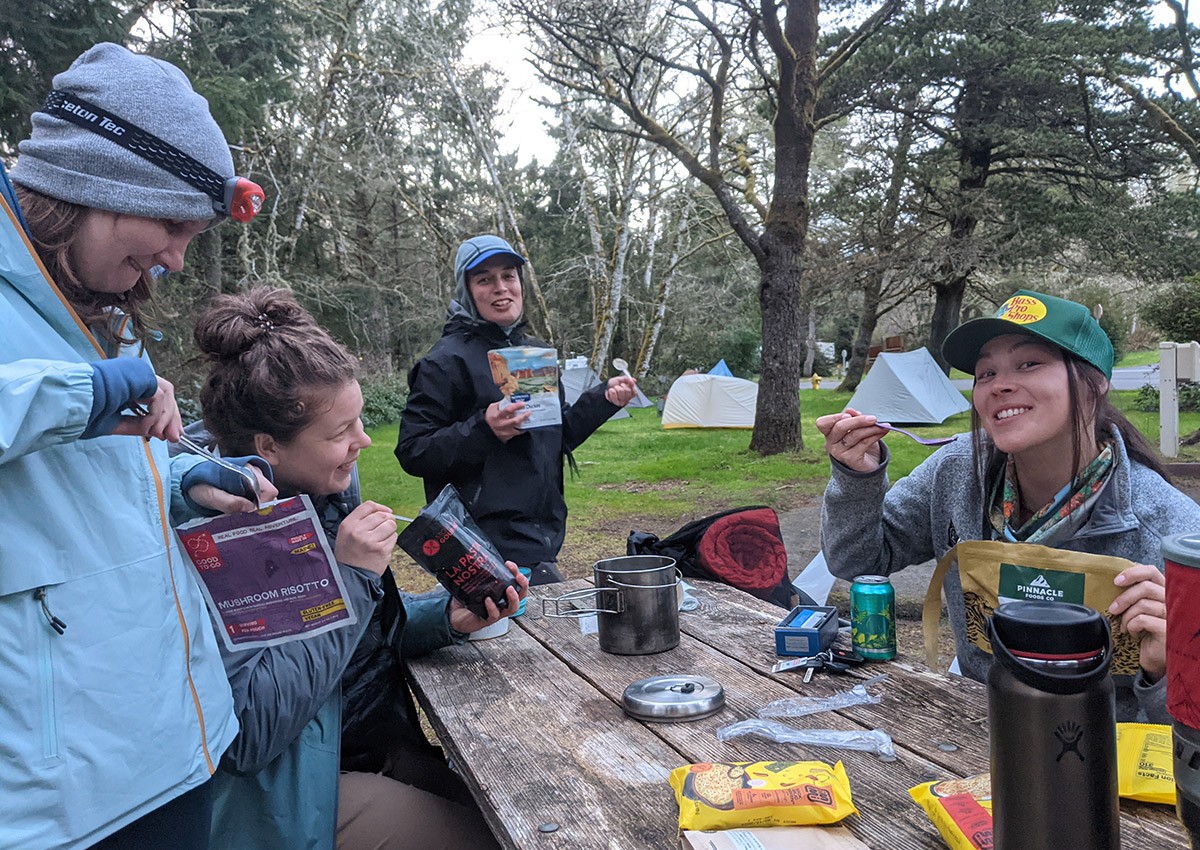How Many Days Can You Survive Without Water And Food? The human body’s resilience is truly remarkable, but understanding its limits is key to survival. FOODS.EDU.VN offers a comprehensive guide to help you understand the critical factors influencing survival without sustenance and hydration, ensuring you’re well-prepared for any unexpected situation. By understanding the variables at play, you can optimize your chances and make informed decisions.
1. Understanding The Basics: How Long Can You Really Last?
The common “rule of threes” suggests a person can survive three minutes without air, three days without water, and three weeks without food. However, this is a general guideline, and individual circumstances can significantly alter these timelines. Several factors influence survival time, including:
- Environmental Conditions: Temperature, humidity, and weather extremes drastically affect how quickly your body loses fluids and energy.
- Individual Metabolism: Metabolic rate, pre-existing health conditions, and body composition influence how efficiently your body utilizes stored resources.
- Activity Level: Physical exertion accelerates calorie and fluid expenditure, shortening survival time.
1.1. The Critical Role of Water
Water is essential for virtually every bodily function, from regulating temperature to transporting nutrients. Dehydration leads to a rapid decline in physical and cognitive abilities.
- Mild Dehydration (1-2% loss of body water): Thirst, fatigue, and decreased cognitive function.
- Moderate Dehydration (3-5% loss of body water): Headache, dizziness, muscle cramps, and decreased performance.
- Severe Dehydration (6-10% loss of body water): Severe dizziness, rapid heartbeat, difficulty breathing, and potential organ damage.
- Critical Dehydration (11%+ loss of body water): Organ failure, coma, and death.
Survival time without water can range from a few days to a week, depending on the factors mentioned above. In hot environments, dehydration can occur within hours, emphasizing the importance of finding a water source or conserving fluids.
1.2. The Impact of Food Deprivation
While the body can survive longer without food than water, the effects of starvation are still significant. The body initially relies on stored glycogen for energy, but this reserve is quickly depleted. It then turns to fat stores, and eventually, muscle tissue.
- Initial Stage (First Few Days): The body utilizes glycogen stores, leading to fatigue and irritability.
- Mid Stage (Days 3-7): The body enters ketosis, burning fat for energy. This can lead to nausea, headache, and bad breath.
- Late Stage (After 1 Week): The body begins breaking down muscle tissue, leading to significant weakness, immune suppression, and organ damage.
Survival time without food typically ranges from several weeks to a few months, depending on the individual’s starting body fat and overall health.
2. What Happens To Your Body When You Deprive Yourself Of Water and Food?
Understanding the physiological processes that occur during water and food deprivation is crucial for recognizing the signs of distress and taking appropriate action.
2.1. The Stages of Dehydration
Dehydration affects every system in the body, leading to a cascade of negative consequences.
| Stage | Symptoms | Physiological Effects |
|---|---|---|
| Mild Dehydration | Thirst, dry mouth, fatigue, decreased urination, headache | Decreased blood volume, reduced oxygen delivery to tissues |
| Moderate Dehydration | Dizziness, muscle cramps, nausea, dark urine, confusion | Increased heart rate, decreased blood pressure, impaired kidney function |
| Severe Dehydration | Rapid heartbeat, rapid breathing, sunken eyes, shriveled skin, delirium | Organ damage, electrolyte imbalance, potential kidney failure |
| Critical Dehydration | Loss of consciousness, seizures, organ failure | Death |


2.2. The Stages of Starvation
Starvation triggers a series of metabolic adaptations as the body attempts to conserve energy and maintain essential functions.
| Stage | Symptoms | Physiological Effects |
|---|---|---|
| Initial Stage | Hunger, irritability, fatigue | Glycogen depletion, decreased blood sugar |
| Mid Stage | Headache, nausea, bad breath (ketosis), decreased energy | Fat breakdown, ketone production, muscle protein sparing |
| Late Stage | Significant weakness, muscle wasting, immune suppression, edema, organ damage | Muscle protein breakdown, decreased metabolic rate, electrolyte imbalances, vitamin deficiencies, impaired organ function |
| Terminal Stage | Organ failure, heart failure, death | Severe electrolyte imbalances, cardiac arrhythmias, complete organ shutdown |
3. How To Prolong Survival: Strategies And Tips
While avoiding situations that lead to water and food deprivation is ideal, understanding survival strategies can significantly increase your chances if you find yourself in a dire situation.
3.1. Prioritize Water
- Find a Source: Look for natural springs, streams, or collect rainwater.
- Purify Water: Use a water filter, boil water, or use purification tablets to eliminate bacteria and parasites.
- Conserve Water: Reduce physical activity, stay in the shade, and avoid sweating.
- Collect Dew: In arid environments, collect dew from plants using a cloth.
3.2. Conserve Energy
- Minimize Activity: Avoid unnecessary movement to conserve calories.
- Seek Shelter: Protect yourself from the elements to reduce energy expenditure on temperature regulation.
- Stay Warm: Hypothermia significantly increases calorie burn.
- Rest: Adequate rest is crucial for conserving energy and maintaining mental clarity.
3.3. Foraging For Food (With Caution)
- Identify Edible Plants: Only consume plants that you are 100% certain are safe. If you’re not sure, don’t eat it.
- Avoid Poisonous Plants: Learn to identify common poisonous plants in your area.
- Eat Insects: Insects are a good source of protein and fat, but cook them thoroughly to kill parasites.
3.4. Maintaining Mental Resilience
- Stay Positive: A positive mindset can significantly impact your ability to cope with stress and make sound decisions.
- Focus on Tasks: Break down the situation into manageable tasks and focus on completing them one at a time.
- Signal For Help: Use mirrors, fire, or brightly colored clothing to signal for help.
4. Debunking Myths And Misconceptions
Several misconceptions surround survival without water and food. Understanding the truth can help you avoid dangerous mistakes.
- Myth: You can drink your own urine.
- Fact: Urine contains high levels of salt and waste products, which can worsen dehydration.
- Myth: You can survive for weeks without water if you conserve energy.
- Fact: While conserving energy is important, dehydration can occur within days, regardless of activity level.
- Myth: Eating snow will hydrate you.
- Fact: Eating snow can lower your body temperature and expend energy. Melt snow before consuming it.
5. Real-Life Examples: Survival Against The Odds
Numerous documented cases demonstrate the human body’s ability to endure extreme conditions.
- Angus Barbieri: Survived for 382 days on tea, coffee, water, soda water, and vitamins.
- Mahatma Gandhi: Survived 21 days with only sips of water.
These cases highlight the importance of mental fortitude and the body’s remarkable ability to adapt. However, it’s crucial to remember that these are exceptional cases, and the average person’s survival time will be considerably shorter.
6. The Psychological Impact Of Deprivation
The psychological effects of water and food deprivation can be as challenging as the physical ones.
- Anxiety and Fear: Uncertainty about the future can lead to intense anxiety and fear.
- Irritability and Mood Swings: Hunger and dehydration can significantly impact mood and emotional stability.
- Cognitive Impairment: Decision-making abilities, memory, and concentration can be severely affected.
- Hallucinations: In extreme cases, dehydration and starvation can lead to hallucinations and delirium.
7. Expert Opinions and Scientific Studies
Research and expert opinions provide valuable insights into the science of survival.
- The Minnesota Starvation Experiment: This study demonstrated the profound psychological and physiological effects of prolonged starvation.
- Dr. Grant Lipman (Stanford University): Emphasizes the importance of clear thinking and avoiding panic in survival situations.
- Dr. Nancy Zucker (Duke University): Highlights the dangers of muscle breakdown and organ damage during starvation.
8. What Foods Are Best For Delaying Starvation?
When preparing for a potential survival situation, choosing the right foods can significantly extend your ability to function and increase your chances of rescue.
- High-Calorie Foods: Focus on foods that provide a significant amount of energy per serving.
- High-Fat Foods: Fat is a dense source of calories and helps to slow down the digestive process.
- Easy-To-Digest Foods: Choose foods that are easy for your body to process, minimizing energy expenditure.
8.1. Recommended Food Choices
| Food Item | Benefits | Considerations |
|---|---|---|
| Salami | High in fat and protein, provides sustained energy | Choose a variety that doesn’t require refrigeration |
| Hard Cheese | High in fat and protein, long shelf life | Select a hard cheese like cheddar or Parmesan |
| Nuts and Seeds | Good source of healthy fats, protein, and fiber | Choose a mix of nuts and seeds for a variety of nutrients |
| Dried Fruit | High in sugar for quick energy, provides essential vitamins and minerals | Can be sticky and attract insects |
| Energy Bars | Convenient and calorie-dense | Look for bars with a good balance of fat, protein, and carbohydrates |
| Dehydrated Meals | Lightweight and easy to prepare, provides a balanced source of nutrients | Choose meals with high calorie counts |
9. First Aid and Medical Considerations
If you encounter someone who has been without water and food for an extended period, reintroducing nutrients and fluids requires careful management to avoid complications.
- Rehydration: Provide small sips of water or electrolyte solutions gradually. Avoid giving large quantities of water quickly, as this can lead to electrolyte imbalances.
- Refeeding Syndrome: A potentially fatal condition that can occur when malnourished individuals are fed too quickly. Introduce food slowly and monitor for signs of complications.
- Medical Attention: Seek professional medical attention as soon as possible.
10. FAQ: Addressing Your Concerns
Here are some frequently asked questions about survival without water and food:
10.1. How long can you survive without water in hot weather?
Survival time can be as short as a few days due to accelerated dehydration.
10.2. What are the first signs of dehydration?
Thirst, dry mouth, and decreased urination are early indicators.
10.3. Can you drink water from a cactus?
Some cacti contain drinkable water, but identifying the right species is crucial.
10.4. What is the best way to purify water in the wilderness?
Boiling, filtering, and using purification tablets are effective methods.
10.5. How can you tell if a plant is safe to eat?
If you are not 100% certain, do not eat it.
10.6. What is the best strategy for rationing food?
Eat only enough to maintain mental clarity and mobility.
10.7. How does cold weather affect survival time without food?
Cold weather increases calorie expenditure and shortens survival time.
10.8. What are the psychological effects of starvation?
Anxiety, irritability, and cognitive impairment are common.
10.9. What is refeeding syndrome?
A dangerous condition that can occur when malnourished individuals are fed too quickly.
10.10. When should you seek medical attention after being without food and water?
Seek medical attention as soon as possible.
11. The Importance of Preparation and Education
The best way to increase your chances of survival is to be prepared and educated.
- Take a Survival Course: Learn essential skills such as fire starting, shelter building, and water purification.
- Pack a Survival Kit: Include a water filter, high-calorie foods, a first-aid kit, and signaling devices.
- Plan Your Trips: Inform someone of your itinerary and expected return time.
- Stay Informed: Stay up-to-date on the latest survival techniques and information.
12. How FOODS.EDU.VN Can Help You
At FOODS.EDU.VN, we are dedicated to providing you with the knowledge and resources you need to navigate the world of food and nutrition. Whether you’re looking for detailed recipes, expert advice on healthy eating, or in-depth information on survival strategies, we have you covered.
12.1. What We Offer
- Comprehensive Articles: Our articles cover a wide range of topics, from cooking techniques to nutritional science.
- Expert Insights: We collaborate with leading chefs, nutritionists, and survival experts to bring you the most accurate and up-to-date information.
- Practical Tips: We provide actionable tips and strategies that you can implement in your daily life.
- Community Support: Connect with other food enthusiasts and share your experiences.
12.2. Why Choose Us?
- Reliable Information: Our content is thoroughly researched and fact-checked to ensure accuracy.
- Engaging Content: We strive to make learning about food and nutrition fun and engaging.
- User-Friendly Platform: Our website is easy to navigate and accessible on all devices.
- Commitment to Excellence: We are committed to providing you with the best possible experience.
13. Stay Safe and Informed
Understanding how long you can survive without water and food is crucial for anyone who spends time outdoors or wants to be prepared for emergencies. While the exact duration depends on various factors, knowing how to conserve resources, find sustenance, and maintain a positive mindset can significantly increase your chances of survival.
Explore FOODS.EDU.VN for even more in-depth articles, expert tips, and practical guides to enhance your knowledge and skills. Our team is dedicated to providing you with the resources you need to stay safe, healthy, and informed.
For more information, please visit our website at foods.edu.vn or contact us at 1946 Campus Dr, Hyde Park, NY 12538, United States, or Whatsapp: +1 845-452-9600. Stay prepared, stay informed, and stay safe!
Disclaimer: This article is for informational purposes only and should not be considered medical advice. Always consult with a qualified healthcare professional before making any decisions related to your health or treatment.
